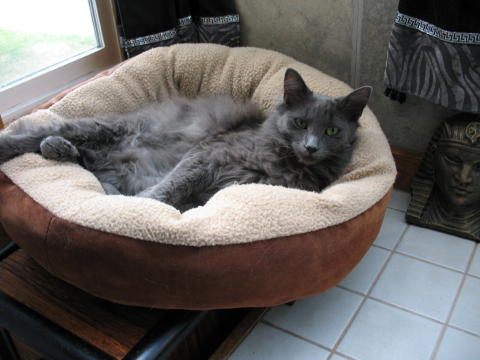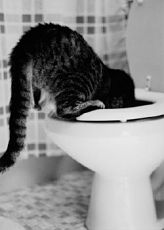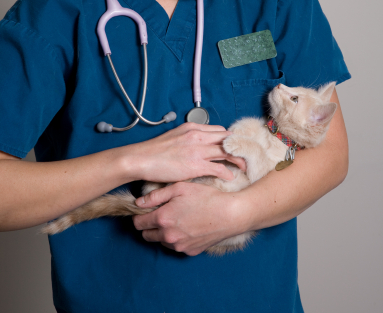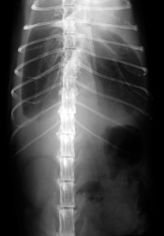Cat Liver Disease

(above) Chanel#5 in bed.
CAT LIVER DISEASE
There are many cat diseases and we will deal with liver disease which is important to me because I lost one of my Himalayan cats to it some years ago.
The earlier you recognize this disease, the better the chances are for
prolonging your cat's life. Dr. Jean Duddy, an internal medicine
specialist, says,
"The most common sign of liver disease is that their appetite will fall
off. As the disease progresses, their skin will turn yellow, the whites
of their eyes will turn yellow and they'll even get a yellow tinge to
their mouth. Cat liver disease in cats has to be treated fairly aggressively. There's not a lot of home care you can do for some cat
illnesses."
Dr. John Broussard, a specialist in liver problems, says symptoms of cat illnesses including cat liver disease issues may also include vomiting, diarrhea or swelling of the abdomen, in addition to loss of appetite and jaundice. "Anytime a cat stops eating or displays these symptoms for an extended period of time, the problem needs to be addressed," he says. "Most cats that stop eating or have jaundice or physical changes in their abdomen probably should be seen by a vet. It's not something that can be appropriately addressed by the owner".
Just because you suspect cat liver disease, it doesn't mean its all over. Cat liver disease can often be treated successfully. Remember, treatment and prognosis hinge on an accurate diagnosis. "This isn't something you can diagnose on your own and treat with vitamins," cautions Dr. James Ross, of Tufts Veterinary Hospital.
Depending upon the type of cat liver disease found...metabolic, inflammatory or cancerous...treatment ranges from antibiotics to chemotherapy. Diagnosing the disease type begins with a blood test to see if there is an elevation of feline liver enzymes. An elevation in those enzymes need not cause alarm, but it can signify other things that may be less serious and is also a good indicator of liver damage.
Broussard says, "There are blood tests to assess liver damage. They look for leakage of enzymes that reflect damage to the liver. We also can look at products the liver makes, like glucose and albium. A lot of the damage and the function of the liver can be determined via blood work." If tumors are suspected, an x-ray or ultrasonic exam may be done.
Metabolic liver problems such as fatty liver syndrome, are the most prevalent. This type of liver disease usually manifests itself when a cat has suffered a loss of appetite. Obese and older cats are more prone to this type but any pet that stops eating for an extended period, can develop it. So...monitor your cat's eating habits, try to prevent obesity so your cat will be less prone to get this disease.
My vet does an annual blood work-up on my cats that have reached 8 years old. Of course you could start this earlier, perhaps at 5 years old. This way, any sign of the disease can be caught at an early stage. Don't forget that your cat is secretive and hides a lot of cat illnesses and what is going on with it.
Cats with fatty liver disease generally respond well in a nutritional regimen. Sometimes the best way to provide that nutrition is through a feeding tube, which may have to be kept in place for several weeks. Also see cat surgery.
Inflammatory liver disease for which the cause is unknown, is also fairly common as is infectious liver disease, often caused by bacteria. Once the affected cat is on medication and has good home monitoring for weight some can return home in 1-2 days. Early and aggressive treatment is mainly positive and about 70% survive. Getting these cats on fluids quickly makes the difference between life and death.
Inflammatory liver problems such as inflammatory hepatitis, are often connected with a failing immune system, but can be aggressively treated with steroids or other chemical agents that slow down the immune system. Antibiotics, along with dietary supplements, can be an effective treatment. Unfortunately, some are chronic, needing lifelong treatment. Most cats will need a lot of TLC to go with their medications.
A liver cancer prognosis is bad news. Benign types of cancers can be removed surgically, but by the time feline liver cancer is detected, it's already too late to treat. This was the fate of my Himalayan, Bandita, who was 9 years old.
Cats suffering from this type of cancer, which they suspect is caused by genetic, viral or environmental things, usually don't live long after diagnosis. With lymphoma (the most common type of feline cancer), most cats will go into remission on chemotherapy and have a survival rate of months to maybe a year. Hospitalization is required in almost all feline liver disease cases.
Personally, I believe you have to weigh the cost of treatment and the pain and suffering of your beloved cat before moving forward with attempting treatment of liver cancer. Even if I had the several thousand dollars required for treatment, I simply could not put my cat through the process to gain a few months at most when my cat had already made a decision by stopping eating. This is a personal choice you have to make for your cat. Quality of life and life without pain are paramount. Also see Cat Medicine.
Related Articles......
Return from Cat Liver Disease to Cat Health Homepage
Having trouble finding what you need? Cat Health Index & Site Map
OR
Do you have a question to ask?...Questions
OR
Do you have a cat story to share?...Simply click here to go to that page!
Copyright@2010-2020 All rights reserved.Cat-health-detective.com
This website is information only. Consult a veterinarian for medical assistance

"Like Us" on Facebook
or...
"Like Us" here




















